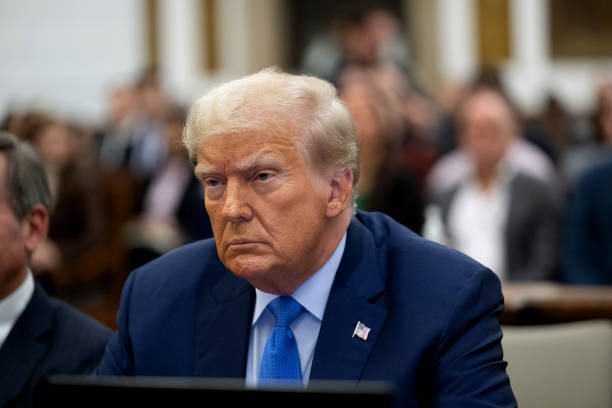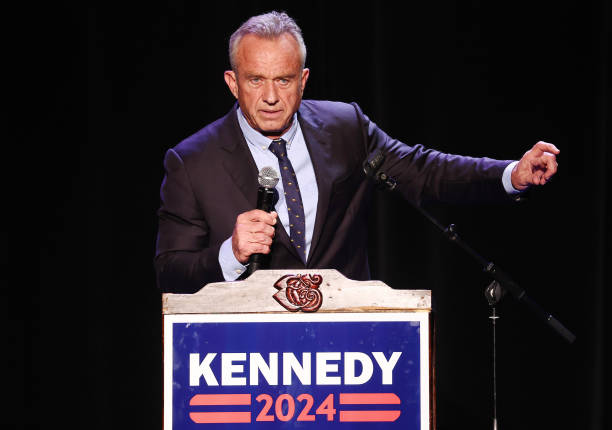Recent polls indicate a slight strengthening of Joe Biden’s position in the upcoming US presidential election. However, they also highlight a potential risk posed by third-party candidates to Biden’s prospects of securing the White House in November.

In a poll conducted by the New York Times/Siena College and released on Saturday, it was revealed that Biden has narrowed the gap with Donald Trump since February. Among registered voters, Trump leads Biden by one point, with 46% to Biden’s 45%.
Trump’s Absence Shifts Support Dynamics
This shift in support comes at a time when Trump is expected to be largely absent from the campaign and fundraising circuit for approximately six weeks due to his involvement in a criminal trial in New York related to pre-2016 election hush money payments.

While the New York Times poll shows a narrowing race, it reveals a troubling trend for Democrats: 42% now think the country fared better under Trump, up from 39%. Trump’s economic approval rose by 10%, contrasting with 25% who view Biden’s tenure negatively.
The I&I/Tipp survey of 1,265 voters showed Biden ahead of Trump by 3 points in a head-to-head race (43% to 40%). But with independents like Robert F. Kennedy Jr., Cornel West, and Jill Stein included, Biden and Trump tied at 38%, with Kennedy gaining 11%, West 2%, and Stein 1%.
These findings underscore the significance of third-party candidates and their potential impact on the outcome of the election. As the race progresses, both Biden and Trump must steer the challenges posed by a diverse field of contenders to secure victory in November.
RFK Jr.’s Progressive Alignment and No Labels’ Unity Struggle
The observation by Jones regarding RFK Jr.’s alignment with progressive leftist views, akin to those of the Democratic party’s current leadership, sheds light on the dynamics of third-party candidates in the upcoming election.
RFK Jr.’s campaign, along with vice-presidential pick Nicole Shanahan, has focused on securing ballot access in six states: Hawaii, Nevada, Utah, Idaho, North Carolina, and New Hampshire.

Earlier this month, No Labels decided against nominating a “unity ticket” candidate after raising $60 million and reaching out to 30 potential contenders. Despite Americans’ interest in independent presidential bids and national unity, the organization couldn’t find a viable path to the White House for any candidate.
Kennedy’s candidacy, though he refutes claims of being a “spoiler” to Democratic aspirations, remains a concern for the party currently in executive power. The polling data adds another layer of complexity. A recent Rasmussen survey indicates that regardless of third-party contenders, Biden trails Trump.
In a head-to-head match between Biden and Trump, the survey revealed 49% of likely US voters favoring Trump and 41% leaning towards Biden. This represents a marginal increase for Trump since February when he held a six-point lead.
Furthermore, the poll found that 8% of respondents would opt for another candidate, aligning closely with the findings from the I&I/Tipp survey.
